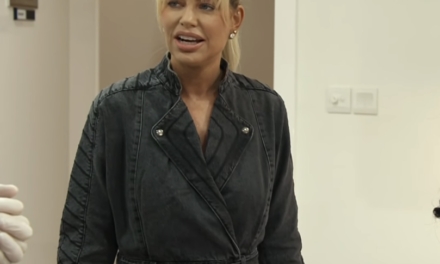Gayle and Jeanne, two fellow silver sisters on Sixty and Me, commented on a recent post of mine. Jeanne threw down this gauntlet.
In response, Gayle wrote:
“When you have all the time you don’t know where to start.”
Let me see if I can help.
Just because we are suddenly handed oodles of time (whatever the reason) doesn’t mean we have a clue what to do with it. We might want first to address why we suddenly have that time. Therein lies the answer. For when we are faced with great change, we inevitably enter big transitions.
Are You in Transition? We All Are
Any time you and I face a major transition, such as turning 60 or more, losing a parent, losing a spouse, divorcing, burying a child, making a huge move – the list is endless – we enter a very important period.
Rather than go into great detail on this, I would refer you to the sweetly-written evergreen book Transitions, Making Sense of Life’s Changesby Dr. William Bridges. I’m a trainer in this material and have used it to help me through a great many rough spots.
The very first and most important point: What you are feeling, no matter what it is, is normal, predictable, natural, and absolutely positively what it looks like when people go through big changes. You are indeed in excellent company.
The short version of Bridges’ book is that change happens TO us and forces us into transition, which is our emotional response to that change. There are three phases (and they are not linear or predictable, we wobble in and out of them as needed):
- The Ending, when we need to acknowledge, name, and mourn our losses.
- The Neutral Zone, which is where so many of us are, hung between the trapezes of where we were and where we are headed, without a road map.
- The New Beginning, which comes when it comes, and not usually on our time frames.
Even though I know this material by heart, I still get caught off guard by the deep emotions that are evoked through seismic shifts. At this age, they happen more frequently.
In the interest of brevity, and because I really do hope you will get this slim, very readable volume, here then are some strategies for Jeanne and Gayle, and by association, maybe you, too. I need the reminders myself, for I forced upon myself a massive change when I uprooted and moved after 50 years in the same state. I can relate.
How this looks in real life: I moved to a dream home in a new state. I lost access to my friends, Red Rocks where I train, a complex web of hard won and comfortable contacts after a lifetime in one state. You know exactly what I mean. Gains AND losses.
Strategies for Each Stage
If you’ve had a Big Ending:
Take the Time to Write Down What You Have Lost
All endings entail losses. Writing names them, honors them in your heart, and allows you to acknowledge that yes, these things must pass on.
Then Take the Time to Mourn Your Losses
Western societies are not particularly good at mourning, which is sacred, and part of what we must do to be able to move on. Not doing so means we carry these losses for years.
In the Neutral Zone, the best single coping strategy is to:
Create “Interim Scaffolding”
Set small, reachable, simple goals and schedules that allow you to feel as though there is some predictable rhythm to your day. You may not be able to do this for a while. I guarantee you that if you don’t take time to mourn your losses this will be very difficult.
When you can, ask what you can take on, not what you should take on. Perhaps the only thing you can do this day is read a chapter of a book, curl up with your cat/dog/spouse/pet alligator and nap. Resting the heart is part of transition.
Compulsive doing can get in the way, but that very compulsive doing is a hallmark of a society that has difficulty valuing learning how to BE vs. DO. This stage is usually the hardest for people for good reason.
Go with Small Goals, Simple Choices
Avoidance is also a choice. And sometimes the best one for now.
Don’t Isolate
That is the worst. For we come to believe that everyone else is doing fine, but I’m not. Nope. Everyone else ALSO believes that everyone is doing fine and I’m not. We need each other to clarify our fog, to validate our discomfort, and to remind us that yes, this is very much the human condition.
But fair warning, rather than perpetuate anger, let’s use our support to find what is good in it. For there is much that is very good. Anger is normal. Not letting go of it is dysfunctional.
Finally, the New Beginning is not some magic castle that you enter and all is well forever.
It simply means that things have settled into some predictability. You may not like it after the freewheeling nature of the Neutral Zone. Others are desperate for that sense of settled-ness.
- Take the time to watch, see what’s going on, and enjoy whatever “new normal” looks like.
- Allow yourself to get your bearings, in case things may shift again. They will, likely. But at least you’re expecting it.
If it sounds like you could apply this to the pandemic, you’re right.
The Only Guarantee We Have
By this age, we’ve been through endless changes and transitions. This is what’s happening. Now you have a few tools and a book that might be of use.
Perhaps the most important message to Jeanne and Gayle, to you and myself, is that truly, this too shall pass. And, we will be different at the other end. How different is up to you, and how you use these sacred passages to sculpt your soul and enrich your life is your journey. Along which there will be….
…more change. But you’ll be ready.
How often do you think “I should get started on this project” but never get around to it? What is actually stopping you? Do you think it’s okay to stop and have some time to just ‘do nothing’ while getting your bearings in this new world? Please share your thoughts and let’s ponder them together!




